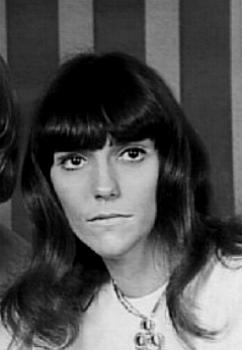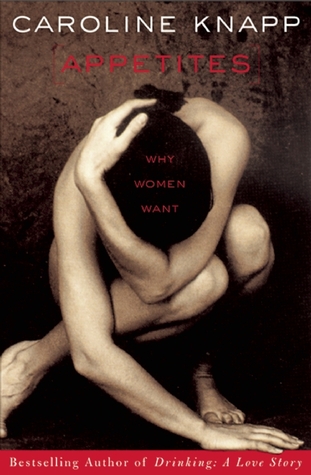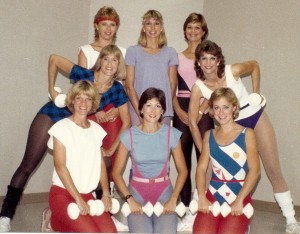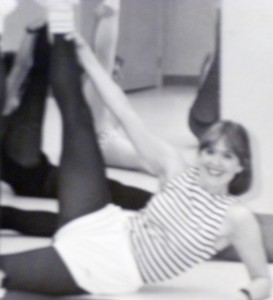 Went to bed with the rain hitting the roof. Woke up to more of the same, and with these words streaming in my head:
Went to bed with the rain hitting the roof. Woke up to more of the same, and with these words streaming in my head:
What I’ve got they used to call the blues
Nothing is really wrong
Feeling like I don’t belong
Walking around
Some kind of lonely clown
Rainy days and Mondays always get me down—Karen Carpenter (1950-1983)
 Watching Carpenter’s beautifully sorrowful eyes as she sings this song before her death—following her eight-year battle with anorexia nervosa—brought tears to my eyes this morning.
Watching Carpenter’s beautifully sorrowful eyes as she sings this song before her death—following her eight-year battle with anorexia nervosa—brought tears to my eyes this morning.
So I picked up a book I had almost finished reading recently—Appetites: Why Women Want, by Caroline Knapp. I read the next-to-last chapter: “Body as Voice: The Hidden Pantomime of Sorrow.” Knapp shares stories of three women she interviewed. Each acted out their sorrow, their emptiness, in a different way. One was a shoplifter. One cut herself. One was bulimic. And she herself was an alcoholic and also anorexic. She points out numerous things these women have in common, including mothers who didn’t give them what they needed:
“Some of the saddest women I know, women who seem particularly prone to fits of sorrow and despair, are the ones whose relationships with their mothers felt somehow compromised or distant or tinged with resentment, who grew up with the feeling that their mothers didn’t really like them…. [Some of us grew up with] mothers who were too depressed or nervous or unavailable to soothe us…. Whatever paradigm inspires it, the sensation whispers and tugs, it keeps you up at 2 a.m. on a bad night, it compels you to reach for things, for food, for objects of comfort….”
I realize I did a post on this subject a year ago, just as the autumn leaves began to fall and the change in seasons began to tug at my memories. (“Grilled Cheese Sandwiches and Tomato Soup”) And another one just a month ago, “Eat, Drink, Repeat,” but guess what? It’s not over. This may be a lifelong struggle. As Knapp says, “Sorrow is stubbornly resistant to insight.” I’m not offering answers. Just lighting a candle at each little nugget I discover that helps in some way.
Knapp doesn’t blame her anorexia and alcoholism exclusively on her mother (and neither do I) but it’s helpful to understand the part she played in my personal sorrow. As she says:
“But I do think my relationship with her left me with a particular kind of emptiness, a sorrow-laced brand that’s by no means unique to me. The wounds of childhood, deep and pre-verbal and way beyond the grasp of memory, are like footprints covered by new snow; they get hidden with time, sealed over, the traces of felt anguish difficult to perceive, even harder to access. And so the sorrow behind hunger tends to be acted out, described in symbol and code instead of nouns and verbs, a woman’s body and behavior communicating what words can’t quite capture.”

I’m thrust back in time to the years I spent teaching aerobic dancing (in the 1980s), standing in front of my class, in a room with too many mirrors, staring at myself in spandex, weighing 115 pounds and still thinking my thighs were fat. My mother, who owned the aerobic dance business that I ran in Jackson, Mississippi, criticized my choice of leotards and encouraged me to wear running shorts over them at times. And all this when I was an adult, in my 30s. No words of praise for having lost 25 pounds. For my transformation from a chubby teenager to a finely tuned athlete. She just continued to raise the bar. And the bulimia that started in junior high school reared its ugly head again and again.
 After moving to Memphis, I signed on for more mirrors by teaching aerobics at the Downtown YMCA, this time also exposing my wounded psyche to the men who came to the coed lunch hour classes. And although I think most of them were really more concerned about their own shortness of breath than my thighs, exposing myself to that much scrutiny, in retrospect, wasn’t a healthy thing for me. At times, I felt superior to those men—many of them lawyers and business professionals in suits, dressed down to t-shirts and shorts, huffing and puffing to keep up with me as I put them through their paces—possibly acting out my anger at the men in my life who had let me down. My grandfather. Religious and community leaders. Yes, it wasn’t just my mother who made me feel like such a failure. But anger, according to Knapp, is just the tip of the iceberg:
After moving to Memphis, I signed on for more mirrors by teaching aerobics at the Downtown YMCA, this time also exposing my wounded psyche to the men who came to the coed lunch hour classes. And although I think most of them were really more concerned about their own shortness of breath than my thighs, exposing myself to that much scrutiny, in retrospect, wasn’t a healthy thing for me. At times, I felt superior to those men—many of them lawyers and business professionals in suits, dressed down to t-shirts and shorts, huffing and puffing to keep up with me as I put them through their paces—possibly acting out my anger at the men in my life who had let me down. My grandfather. Religious and community leaders. Yes, it wasn’t just my mother who made me feel like such a failure. But anger, according to Knapp, is just the tip of the iceberg:
“There is anger in all these behaviors, certainly: rage at the mother who ripped you off, rage at the mother who inspired so much need and failed to meet it, rage at the self for needing anything at all. But underneath the anger is the most powerful sadness, too: the sadness of children who feel unloved and unlovable, who blame and hurt themselves because of it, who remain speechless in its presence, who engage, instead, in a pantomime of sorrow, a shadow acting out…. The pantomime begins when the hunger overwhelms, when it exceeds the organizing capacities of language. When words fail, you fall back on the body, you permit its behaviors and compulsions and urges to say what you feel and need, to explain the inexplicable.”
If you weren’t already sad on this rainy Monday morning, I’m afraid I may have pulled you down by now, if you are still reading this. But if any of this resonates with you, I hope you can find some comfort in understanding more about the struggle. Next week I hope to share some more positive thoughts from the final chapter of Knapp’s book, “Swimming Towards Hope,” so please come back.
I’m going to hunker down on this rainy day in Memphis and write a synopsis for the novel I have just finished revising. But I might allow myself a grilled cheese sandwich and some tomato soup for lunch first. I feel better already.
This brought me to tears. The deep sadness under the anger. Anorexia. Bulimia. Acting out anger at men. I can so relate. IN Christ , we are healed! I hold on to that often.
Thanks, always, for reading, Marsha. And for your encouraging words:-)
This hits home for many people….Rain depresses me too and brings back memories of mom and dad…I miss them so…and I miss our old High School days full of fun and no worries…
It’s nice to have friends to share this life with:)
Thank you…
Thank you (again) Susan for your words. This is definitely the one thing (well, much more complex than ‘one thing’, but you know what I mean) that I struggle with more than anything else. And the truth is that this will never go away; it’s not something that we can take a pill for, that we can ‘get over’. This is what we live with all the time. Some days this takes all my energy just to function, then I’m wiped out – other days I do feel quite normal, whatever that is. Focus, focus, focus, I keep telling myself. When I read the words of Paul about what he doesn’t want to do is exactly what he ends up doing …. well, I understand them deeply.
Yes, Emma. This is what we live with. And maybe the days when we feel “normal” are gifts. But maybe the other days are also gifts. Life is a gift. Today, I believe that. Friends like you help. Thanks for reading and commenting.
Wow. This really hit home … nail on the head. I must read this book. I am 45 and just beginning to heal from my childhood with a depressed mother. Therapy and meds have helped tremendously … but so does the voices of other women who have been in this special hell that so few talk about. Thank you for this.
It’s really a great book, Michelle. Also Knapp’s earlier book, Drinking, A Love Story. And yes, the voices of other women. A gift.
Monday was a really good day for me, Susan — and Tuesday, too. So I’m only now reading this. Well, duh.
Anorexia or obesity? You took the “high” road, and I took the “low.” ‘Cept my low added pounds and more pounds and tens of pounds . . . And now I’m trying to Fix The Fat. In a few years, after my “fix” and when I settle into a more comfortable and less frenzied writer’s life, maybe I’ll write the Mad Fat Girl’s version of dealing with the childhood, mother & father, anger, depression issues. You inspire me! Thank you for opening yourself. Blessings to you!
I can’t wait to hear about your “more comfortable and less frenzied writer’s life”…. 🙂 Thanks for reading and commenting, NK. Love you.